Embracing the New Norm: The Growing Importance of a Flexible Workforce
In the ever-evolving landscape of work, businesses have found themselves navigating a paradigm shift brought about by the rise of the flexible workforce. This transformation has not only altered the way companies operate but has also ushered in a new era of work dynamics. As organisations adapt to the changing times, the concept of a traditional 9-to-5 office job is gradually giving way to a more adaptable and versatile model.
Flexible Workforce: The Essence of Adaptability
Flexible Workforce: The term “Flexible Workforce” encapsulates a workforce that is not bound by the constraints of a fixed physical location or rigid working hours. Instead, it thrives on adaptability, allowing employees to work where and when they are most productive. This flexibility benefits both the employees, who can better balance their work and personal lives, and the companies, which can tap into a wider talent pool regardless of geographical boundaries.

Virtual Employees: Bridging Boundaries for a Productive Tomorrow
Virtual Employees: A key component of the flexible workforce is the emergence of “Virtual Employees.” These individuals perform their roles remotely, often connecting with their teams and employers through digital platforms and communication tools. This arrangement eliminates the need for a centralised office space and opens doors to talent acquisition beyond the company’s immediate vicinity.
Independent Contractors: Catalyzing Innovation Through Specialized Skills
Independent Contractors: Alongside traditional full-time employees, businesses are increasingly leveraging the skills of “Independent Contractors.” These self-employed professionals bring specialised expertise to the table for a specific project or duration. This approach grants companies access to a diverse array of skills without the long-term commitment of hiring full-time staff.
Temporary Staffing: Agility for Dynamic Business Needs
Temporary Staffing: “Temporary Staffing” plays a pivotal role in maintaining flexibility within a workforce. Companies engage temporary workers for short periods, such as peak seasons or special projects, ensuring that resource allocation aligns with demand. This strategy not only optimises operational efficiency but also provides individuals with varied employment opportunities

Virtual Teams: Collaboration Beyond Boundaries
Virtual Teams: In tandem with the rise of remote work, “Virtual Teams” have gained prominence. These teams consist of members who collaborate seamlessly from different locations, leveraging technology to bridge geographical gaps. The success of virtual teams hinges on effective communication, project management tools, and a shared sense of purpose.
As we delve deeper into the facets of this paradigm shift, it becomes evident that the conventional work model is evolving into a more fluid and adaptive structure. In subsequent sections, we will explore how businesses are strategically integrating these concepts into their operations, reaping the benefits of increased productivity, access to global talent, and enhanced employee satisfaction. The flexible workforce is not just a response to changing times; it’s a strategic progression toward a more dynamic and inclusive future of work.
Embracing the Power of Independent Contractors:
In the modern business landscape, the concept of work has transcended the confines of a traditional office setup. The rise of independent contractors stands as a testament to this transformative shift, redefining how companies operate and employees contribute. Embracing specialised expertise through contractors has opened up a realm of possibilities, allowing businesses to harness precise skills for specific projects while maintaining a flexible structure.
Independent Contractors: A Catalyst for Innovation in Work Dynamics
The evolution of the modern workforce has given rise to a powerful trend – that of independent contractors. These individuals, often referred to as freelancers or consultants, bring a distinct set of skills and expertise to the table. Unlike traditional employees, independent contractors are engaged for specific projects or tasks, granting companies the ability to access specialised talent without the long-term commitment of a full-time hire.
Contractor Collaboration: The Synergy of Skill and Flexibility
In today’s dynamic work environment, the concept of employment has expanded to include contractors who play a pivotal role in shaping businesses. These contractors, whether they be consultants, freelancers, or self-employed professionals, offer companies the flexibility to tap into diverse skill sets for project-based work. This collaborative approach allows businesses to adapt swiftly to changing demands and remain competitive in a rapidly evolving market.
Transforming Work Engagements with Independent Contractors
The strategic utilisation of independent contractors has revolutionised how modern businesses operate. These skilled professionals, who operate on a project-by-project basis, provide a flexible and cost-effective solution for fulfilling specialised roles. Companies benefit from the precise expertise offered by contractors, while contractors enjoy the freedom to pursue varied projects and maintain a dynamic work portfolio.
Contractor Flexibility: Adapting to Business Demands
In an era defined by change and agility, the inclusion of contractors within the workforce has become a strategic imperative. Companies leverage contractors to swiftly adjust their labour force according to fluctuating demands, optimising resource allocation and ensuring optimal operational efficiency. This approach not only enhances a company’s ability to navigate uncertainties but also opens doors for individuals seeking diverse employment opportunities.
The Road Ahead: Harnessing the Potential of Independent Contractors
As businesses continue to adapt to the ever-changing landscape of work, the role of independent contractors will only become more integral. By embracing the expertise of contractors, companies can remain agile, innovative, and competitive in a global market. The journey toward a more dynamic and flexible future of work involves recognizing the pivotal role contractors play in shaping business success, fostering collaboration between contractors and full-time employees, and capitalising on the unique strengths each brings to the table..
Hire a Financially Flexible Workforce
Experience the power of a truly flexible workforce with StaffNow. We understand the changing landscape of employment and offer a solution that lets you harness the benefits of a dynamic workforce without the administrative burdens. As your partner, we take on the role of the employer, absorbing the risks and responsibilities, so you can focus on what matters most – growing your business. Our pool of experienced and affordable candidates, including independent contractors, are available when you need them, offering specialised skills without the long-term commitment. With StaffNow, you can achieve the agility your business needs to thrive in a rapidly changing world.
Frequently Asked Questions: Unlocking the Secrets of Remote Work Success
Remote employees often face challenges such as feelings of isolation, difficulty maintaining work-life balance, managing distractions at home, and ensuring effective communication with team members.
Remote workers can stay motivated by establishing a structured daily routine, setting clear goals, taking regular breaks, and creating a dedicated workspace that minimizes distractions..
Key tools for remote collaboration include video conferencing platforms (like Zoom or Microsoft Teams), project management software (such as Trello or Asana), and communication tools (like Slack or Microsoft Teams) to facilitate seamless interaction among team members.
Employers can support remote employees by providing necessary resources, offering flexible work hours, conducting regular check-ins, and fostering an inclusive culture that encourages open communication and feedback.
To maintain team cohesion, organizations can implement virtual team-building activities, establish regular team meetings, and create opportunities for informal social interactions, such as virtual coffee breaks or happy hours.
Remote employees can manage work-life balance by setting clear boundaries between work and personal time, creating a designated workspace, and adhering to a consistent schedule that includes breaks and downtime.
Benefits of remote work for employees include increased flexibility, reduced commuting time, the ability to work from various locations, and often improved work-life balance.
Companies should consider factors such as the nature of the work, employee preferences, the need for collaboration, technology requirements, and the potential impact on company culture when implementing remote work policies.
Remote workers can combat loneliness by staying connected with colleagues through regular communication, participating in virtual social events, and seeking support from peers or mentors.
Explore More Insights

The Compliance Minefield: How UK SMEs Can Hire Flexible Staff Safely and Legally in 2025
The Compliance Minefield: How UK SMEs Can Hire Flexible Staff Safely and Legally in 2025 Get in Touch Navigating the legal complexities of hiring flexible staff is one of the

Beyond the Hype: Making AI Work for Your SME Hiring (And When You Still Need a Human Expert)
Beyond the Hype: Making AI Work for Your SME Hiring (And When You Still Need a Human Expert) Get in Touch AI is transforming recruitment across the UK, but for

The SME’s Lifeline: Slashing Operational Costs in 2025 with Flexible Hourly Experts
Beyond the Hype: Making AI Work for Your SME Hiring (And When You Still Need a Human Expert) Get in Touch In 2025, UK SMEs face a perfect storm of

Pound-for-Pound: Why Staffing Agencies Outperform In-House HR Teams
Pound-for-Pound: Why Staffing Agencies Outperform In-House HR Teams Get in Touch Introduction: The Hidden Costs of DIY Hiring A single bad hire can cost £12,000+ for SMEs (Oxford Economics). Yet

The Hidden Economic Engine: How Staffing Agencies Power Businesses in High-Tax Economies
The Hidden Economic Engine: How Staffing Agencies Power Businesses in High-Tax Economies Get in Touch Introduction: The Silent Crisis Facing Modern Employers As governments worldwide grapple with budget deficits and

Small Businesses Under Pressure: How StaffNow Helps You Stay Competitive in 2025
Small Businesses Under Pressure: How StaffNow Helps You Stay Competitive in 2025 Get in Touch Introduction: The Perfect Storm Facing UK SMEs As we approach April 2025, small businesses across

